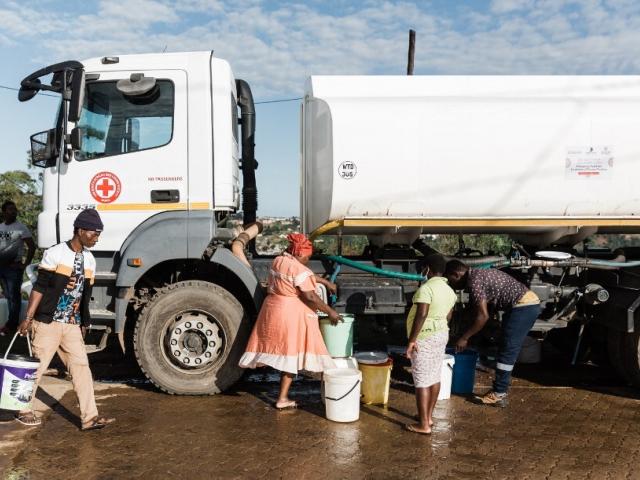This article is more than 11 years old
President Zuma's State of the Nation Address on Thursday night focused on land reform, taxation in the mining sector and clamping down on violent protest. You can read the speech in full here.
Africa Check asked our readers to identify the most significant claims made by the president - not about what the government will do but what it has done and the state of the nation today. We have fact-checked six of them. So what did we think? How did he do?
Access to electricity & water
According to the 2011 Census the percentage of households with access to electricity for lighting stands at 84.7% and the percentage of households with access to water stands at 91%. The president's claim is correct.
New schools replacing mud schools
Education NGO Equal Education pointed out that claims about replacing mud-schools are a perennial feature of SONA and, while the programme to replace mud schools in the Eastern Cape is indeed achieving results (impressive-looking schools are being built), the president's claim exaggerates the results so far. The original target was for 49 Eastern Cape schools to be handed over by March 2012. That is almost a year ago. To date, only two have been handed over, and while the DBE says another five are 100% complete, 14 are 90% complete and a further 11 are 75% complete, this makes a total of 32 at or somewhere approaching completion. Given this, it seems unlikely 40 will be finished by the end of this March. Hence, the best we can say is 'not yet' and that it seems unlikely to done when promised.
The Matric pass rate
Africa Check looked recently at claims about the improving Matric pass rate. As we said in our report, Grade 12 results are indeed improving, making what the president said true in the strict sense. The national pass rate in 2012 rose to 73.9%, up by more than 13 percentage points from the 60.6% who achieved a pass in 2009. Education experts point out, however, that this is misleading for a variety of reasons including the fact that some schools are weeding out students who they think will not pass Grade 12, before they take the exam, and others are pushing students to take subjects traditionally seen as easier in order to raise the school's pass rate. The claim is thus true but misleading.
The rate of urbanisation
The president is correct, at least on what has happened to date. According to the 2011 Census, the percentage of the population living in towns and cities is increasing and 63 percent of the population now lives an urban life. We cannot of course say whether the percentage will hit 70 percent by 2030 and we suspect the president cannot be certain either. But he is correct on what has happened so far.
Action to reduce serious crime
Crime statistics produced over recent years have shown a steady reduction in the still high levels of serious crime.
Determining what precisely has caused these reductions is not simple. Many factors are involved. Late last year, Africa Check investigated a claim from the police ministry that gun controls introduced in 2000 have helped cause the fall in gun crime that has been observed since the middle of the last decade. As our report explains, the evidence (research drawn from mortuary statistics, detailing changes in cause of death), does indeed suggest that the claim is true. We have not, however, seen any evidence about the impact of other aspects mentioned by the president from increased police visibility to operations against stolen vehicles, liquor and drugs. On those aspects, our jury is still out.
Life expectancy
This is an important but difficult topic and, for the moment, the jury is out. The president's remarks seem to contradict the reported remarks of Health Minister Dr. Aaron Motsoaledi who was reported earlier this month by The Citizen as saying that life expectancy was "low" and around 50. We have not yet been able to confirm these remarks with the minister or check the findings of the MRC or the Lancet. We will look into this further.
Conclusion
That's up to you. Send us your comments. Let us know what you think of our fact-checks and of other claims that the president made that we could and should be looking into.
We'd love to hear from you.
Edited by Peter Cunliffe-Jones




Add new comment